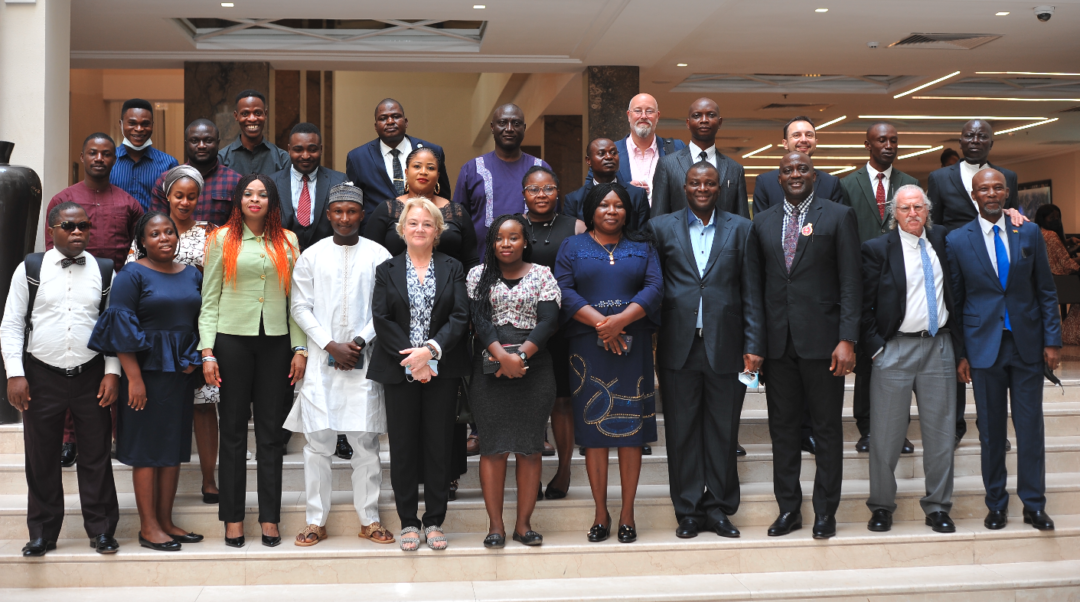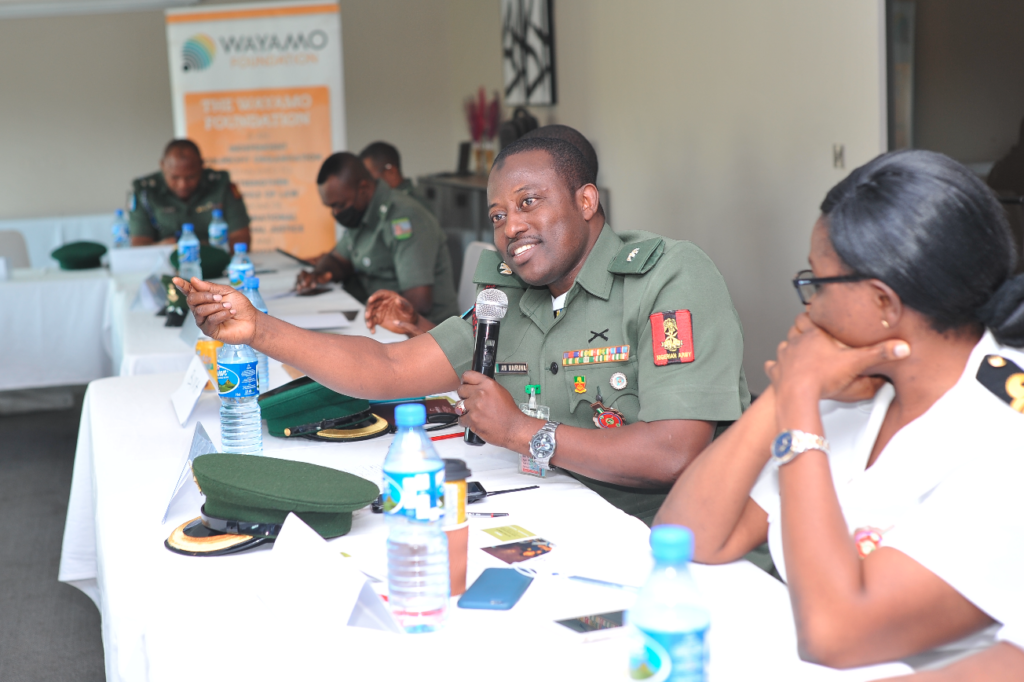Over the course of the week from 29 November to 3 December 2021, the Wayamo Foundation held two different workshops in Abuja, both in their respective ways linked to the need to address international crimes that fall under the jurisdiction of the International Criminal Court (ICC). Both workshops followed a hybrid model, with participants and local experts present in Abuja and international experts joining them via Zoom.
Click here for the pictures of the “interagency collaboration” workshop and for the “Serious Crimes Response Team” workshop.
The first of these workshops brought together prosecutors from the Complex Casework Group (CCG) and investigators from the Joint Investigation Centre and 7 Military Investigations Bureau, as a practical step aimed at “enhancing interagency collaboration to bring the electronic case-file database for terrorism files to fruition”. In order for this newly created database and its case- and evidence-management software to attain their combined potential, investigators and prosecutors need to collaborate from the earliest stages of an investigation. This database will also serve to build more complex cases which may address international crimes that fall under the jurisdiction of the ICC.
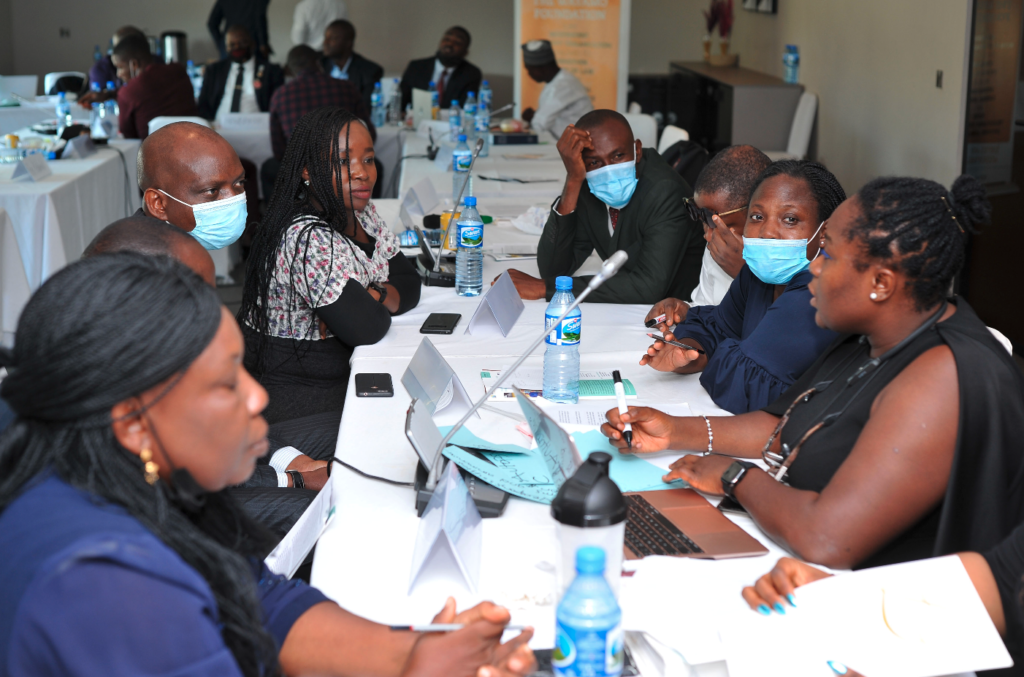
Group work
A review of progress made to date and the workings and possibilities of the electronic case-file database was left to Raphael George and Kris Kotarski, while the CCG’s Matthew Odu Una explored its prospects and challenges, and in so doing came to better understand the problems facing and the stance taken by those on the investigation side of the equation. A most rewarding development during this first workshop was the UNODC’s announcement that it was so impressed by what Wayamo was doing, that it had decided to purchase computer equipment to support the case-management system.
Evidence was addressed from different angles: Colonel Emmanuel Onyekachi Ugwu and Tanya Mehra dealt with battlefield evidence, Tom Parker (UNODC) and Wayamo Director Bettina Ambach conducted a highly successful metaplan exercise in evidence collection, Adejoké Babington-Ashaye spoke with great authority on evidence to build conflict-related sexual violence cases, and Kris Kotarski showed how to use digital assessment forms to flag investigations that include sexual violence crimes.
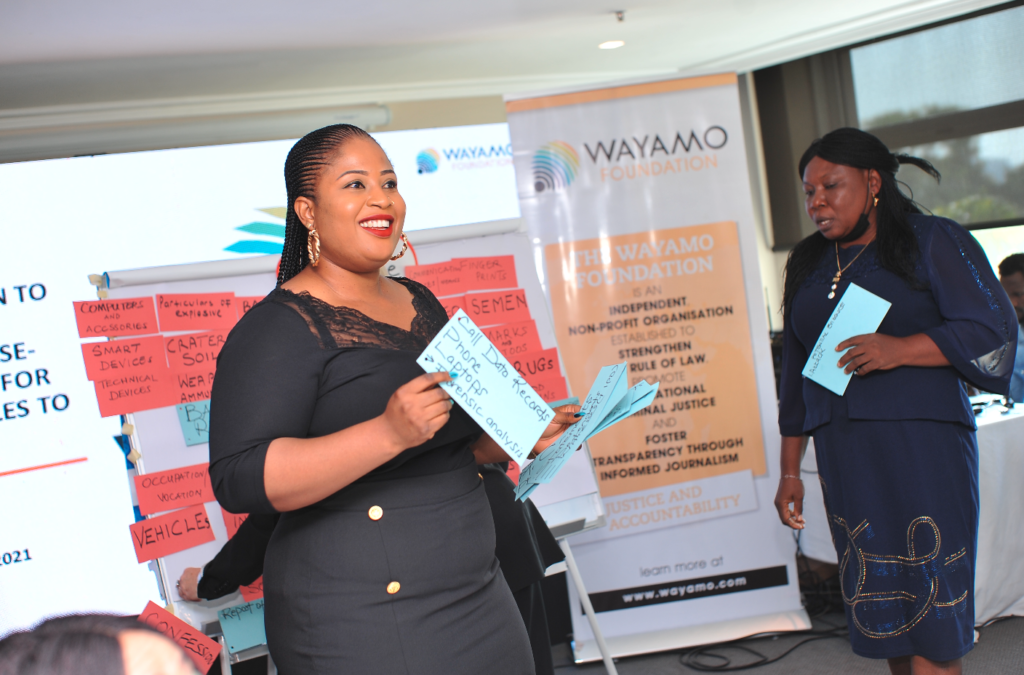
Group work
The second workshop was entirely military in nature, and centred on the ongoing project of creating a Serious Crimes Response Team (SCRT), a highly specialised unit of military investigators and prosecutors drawn from all three services, who will be specifically trained to investigate and prosecute serious crimes that have allegedly been committed by the Armed Forces and potentially fall under the jurisdiction of the ICC.
Wayamo hosted its first capacity-building workshops for members of the proposed Serious Crimes Response Team (SCRT) in May and August of 2021. This marked the third time the group had met at the initiative of the Wayamo Foundation.
Brigadier General Musa, Director of Legal Services at Headquarters spoke on courts-martial in Nigeria, and Commander Emeruwa explored investigation and prosecution under the Nigerian military system. Beamed in via Zoom, Captain Ian Park gave a meticulous account of the rules of engagement, and Dapo Akande, eminent Oxford Professor and newly elected member of the International Law Commission, led a thought-provoking discussion on charging serious crimes under domestic military law or as a war crime.
Arguably the most delicate subject on the agenda, that of Nigeria and the ICC, was left to ICC analyst Claus Molitor, and later that same day to Adejoké Babington-Ashaye who gave a masterful presentation on “Addressing the allegations related to the military: challenges and opportunities”. The SCRT participants were likewise fascinated to hear from Andrew Cayley on “The role of the Iraq Historic Allegations Team and the Service Prosecuting Authority in addressing alleged international crimes committed by the UK military”. He clearly came across as a fellow military lawyer who had gone through an experience very much like that of Nigeria’s vis-à-vis the ICC.
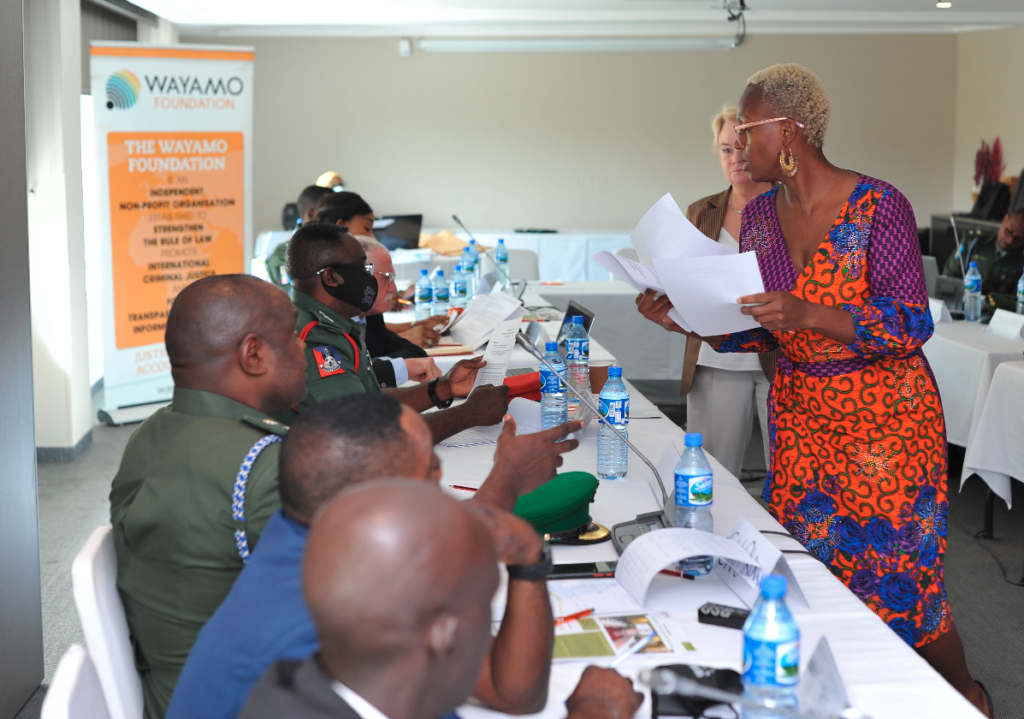
Adejoké Babington-Ashaye, Doctoral Candidate Johns Hopkins SAIS, International Law Specialist, and former ICC investigator
When it came to obtaining evidence, Captain Peter Usuh delivered an appraisal of evidence collection, storage and presentation in criminal investigations, while Jay Morse and Akingbolahan Adeniran gave highly practical advice on the always difficult and sensitive task of interviewing witnesses and suspects.
Lastly, Ekiti State Attorney-General, Olawale Fapohunda and former Ogun State Attorney-General and former ICC investigator Akingbolahan Adeniran made real contributions to the discussion of how to go about creating the SCRT within the Nigerian military.
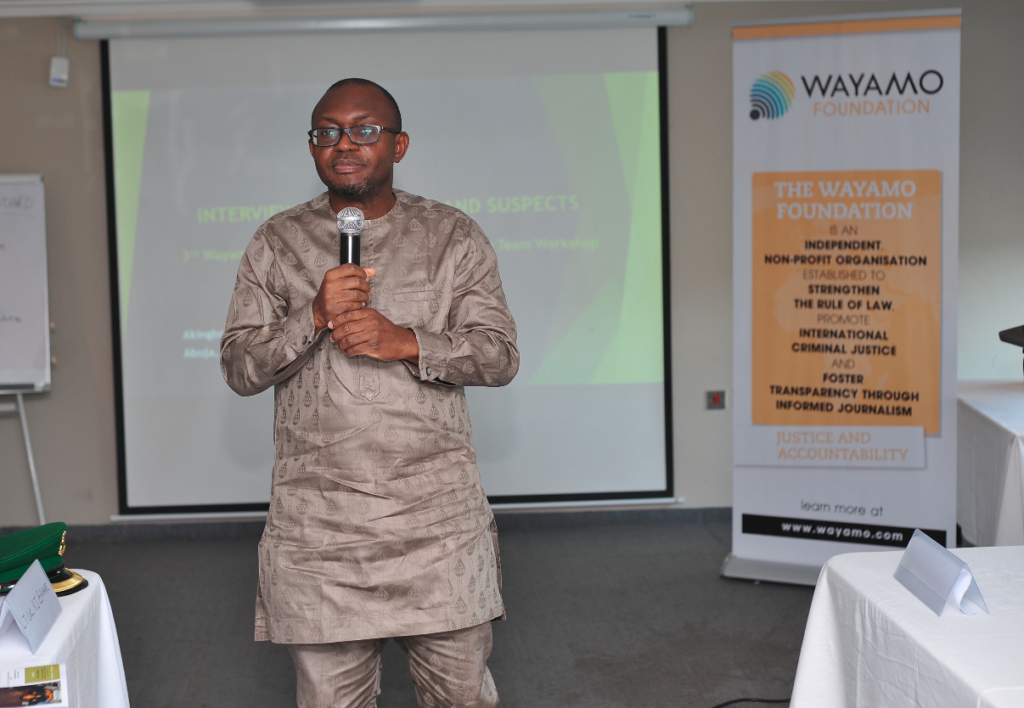
Akingbolahan Adeniran, former Ogun State Attorney-General and former ICC investigator
In terms of visible outcomes, both workshops displayed notable shifts in attitude: on the one hand, the frontline investigators and CCG prosecutors showed a real willingness to reach a mutual understanding of the other side’s needs and make the electronic case-file database a true working asset; and on the other, a still nascent SCRT moved towards genuine consolidation and recognised the need to abandon a fortress-like stance, accept the military’s role, and take the necessary steps to ward off a full ICC investigation.
It would be fair to say that each in its way set the tone for continued progress in 2022.

